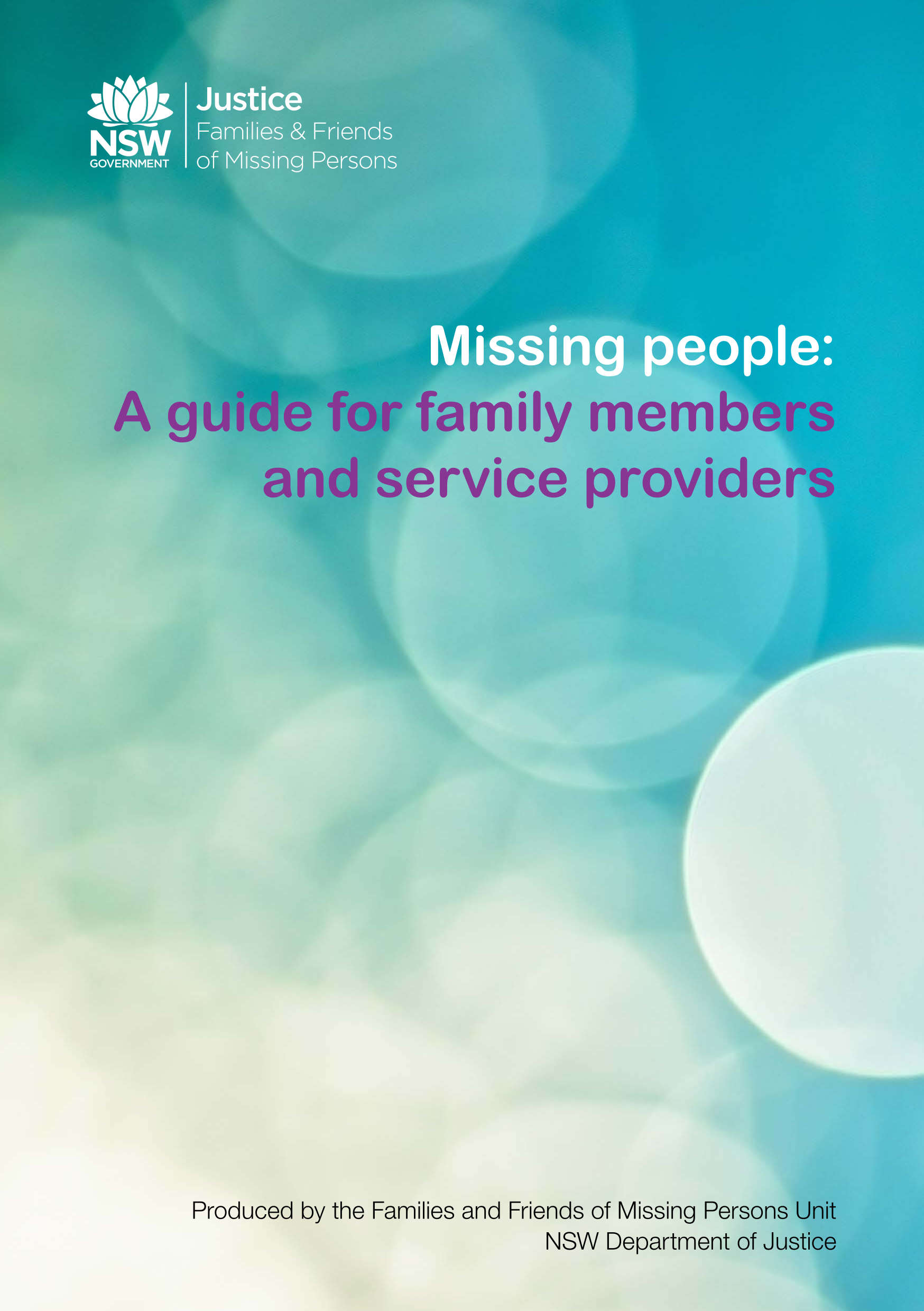This fact sheet was created by the Families and Friends of Missing Persons (FFMPU) in New South Wales, Australia. The FFMPU is a unique service that provides information, referral and support service for families and friends of the missing. The FFMPU has granted permission to CCIMA to reproduce and post this work.
There is no right or wrong way to feel or react when a family member or friend goes missing. Each person’s experience of coping is unique. The following ideas are based on the experiences and thoughts of other families and friends of missing people.
It is important to continue to look after yourself
Physical
- Consult your GP if you have any concerns about your physical health and any symptoms you may have. Don’t ignore signs that you may be unwell.
- Try to eat regularly. If you are unable to prepare meals perhaps ask a friend or family member to assist.
- Try to ensure you have some down time and enough sleep. Accept offers of help to allow you time to rest.
- Gentle exercise can help maintain mood and your ability to keep going physically.
Emotional
- Many families describe the ‘emotional roller-coaster’ they experience when someone is missing. Rapid and unexpected emotional changes are not uncommon.
- Acknowledging your feelings is important. This may include talking to someone you trust about what you are going through (for example, a friend, family member, counsellor, your GP) or writing your thoughts and feelings in a journal.
- Give yourself permission to take a break from searching. Breaks may help you to be able to cope in the long run.
- Be kind to yourself and try to do something nice, for example see friends, see a movie, get a massage.
- Feeling distracted and stressed is normal, so take care with activities that require concentration, such as driving.
- Make daily decisions where possible to give you back a feeling of being in control of your life.
- Try to re-establish routine as much as possible.
- Some families explore ways to stay connected emotionally with their missing loved one, for example through rituals such as marking their birthday or visiting a place special to them.
- Be careful of using drugs or alcohol to alleviate pain. Research has shown that many drugs and alcohol can worsen mood and problem solving abilities.
Social
- The experience of missing can feel isolating. Reach out for, and accept support, for example from friends, family, local community groups, and support agencies.
- Let family and friends assist you where possible, for example with child minding, meals, searching, contacting people.
- Let others know what you need for support. Tell them what is helpful or not helpful to say or do.
- People within the same family may react differently. It can be helpful to be understanding and give each other space and permission to cope in their own way.
- Families often ask how they can support children when a loved one goes missing. It can be helpful to:
- Be honest about what missing means. Let them know that everyone is doing their best to look for the missing person but have not found them yet.
- Notify the children’s school. School counsellors may be a helpful resource in supporting children.
- Set aside time for the children to ask questions and voice their thoughts. It is okay if you do not have answers to all questions
Financial
- Having someone missing can cause financial strain. You may need to take time off work or the missing person may have contributed to finances.
- Contact a financial counsellor if you need advice on credit, debt, or banking issues.
- Notify your employer and GP about what is happening for you and whether you need leave from work. Explore whether your workplace has an Employee Assistance Program (EAP) that may assist with support.
- Contact the FFMPU for other referral information
Further Information
Excerpted from the publication “Missing People: A guide for family members and service providers” developed by Families and Friends of Missing Persons Unit, (NSW, Australia).
For further information, please visit www.missingpersons.justice.nsw.gov.au.


